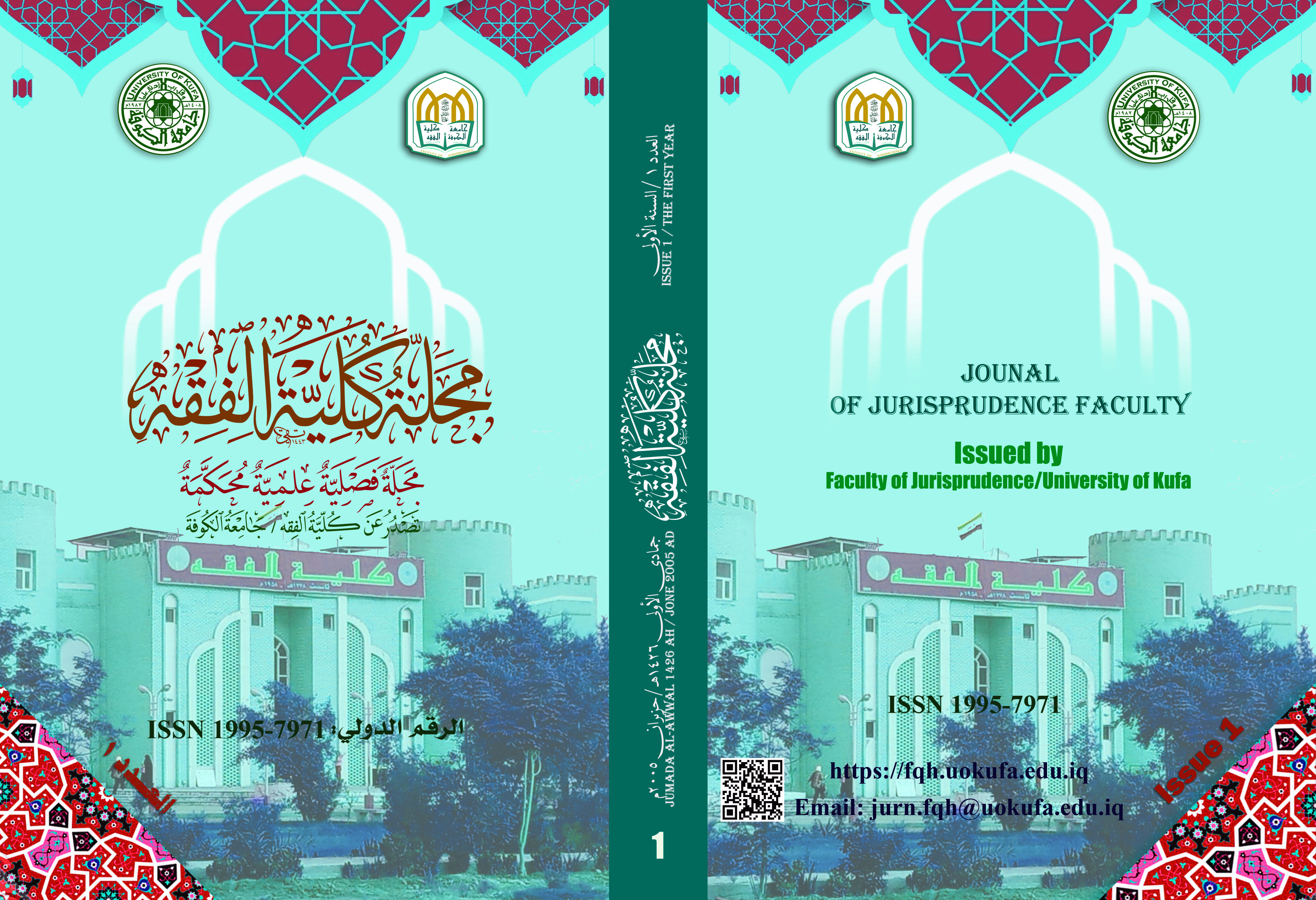Abstract
Abstract
There exist disagreement among Fiqh (Islamic jurisprudence) scholars with respect to whether intention is a condition for the realization of assisting in haram according to Fiqh (Islamic jurisprudence of contracts) and Imamia jurisprudents have offered considerable detailed argumentative discussions on this subject. Generally, Imamia jurisprudents can be divided into two main groups according to their attitude toward the realization of assisting in haram. The first group considers intention as a condition for the realization of assisting; this group consists of two categories. The first category are of the opinion that mere intention is sufficient for the realization of assisting, while from the second category’s viewpoint, intention must be accompanied with the commission of the act intended by the assisted person. The second groups of Imamia jurisprudents believe that intention has no role in the realization of assisting in haram. In the eyes of some proponents of this theory the mere commission of the precondition of haram (moghadamat alharam) or, in other words, mere knowledge of the haram consequence of one’s act is sufficient for the realization of assisting in haram. There are other Imamia jurisprudents who consider intention or customary application (alsedgh alorfi) as a condition of assisting in haram while the others see the mere commission of the assisted act as its realization condition.
It goes without saying that the basis of the above said theories is the significant and principal issue of assisting in haram. In our opinion, the commission of the haram consequence is not a condition for application of assisting title, nor can the realization of assisting be conditioned on mere intention. This paper, through the analytical review of the reasons given for every different theory, concludes that the strongest theory about the realization of assisting in haram, from the view point of Islamic argumentative jurisprudence of contracts, is the customary application theory.
Keywords: assisting in haram; Islamic jurisprudence of contracts; intention; customary application; Imamia jurisprudence
There exist disagreement among Fiqh (Islamic jurisprudence) scholars with respect to whether intention is a condition for the realization of assisting in haram according to Fiqh (Islamic jurisprudence of contracts) and Imamia jurisprudents have offered considerable detailed argumentative discussions on this subject. Generally, Imamia jurisprudents can be divided into two main groups according to their attitude toward the realization of assisting in haram. The first group considers intention as a condition for the realization of assisting; this group consists of two categories. The first category are of the opinion that mere intention is sufficient for the realization of assisting, while from the second category’s viewpoint, intention must be accompanied with the commission of the act intended by the assisted person. The second groups of Imamia jurisprudents believe that intention has no role in the realization of assisting in haram. In the eyes of some proponents of this theory the mere commission of the precondition of haram (moghadamat alharam) or, in other words, mere knowledge of the haram consequence of one’s act is sufficient for the realization of assisting in haram. There are other Imamia jurisprudents who consider intention or customary application (alsedgh alorfi) as a condition of assisting in haram while the others see the mere commission of the assisted act as its realization condition.
It goes without saying that the basis of the above said theories is the significant and principal issue of assisting in haram. In our opinion, the commission of the haram consequence is not a condition for application of assisting title, nor can the realization of assisting be conditioned on mere intention. This paper, through the analytical review of the reasons given for every different theory, concludes that the strongest theory about the realization of assisting in haram, from the view point of Islamic argumentative jurisprudence of contracts, is the customary application theory.
Keywords: assisting in haram; Islamic jurisprudence of contracts; intention; customary application; Imamia jurisprudence
Abstract
إختلف علماء الفقه الإسلامي في اعتبار أو عدم اعتبار القصد لتحقق موضوع الإعانة على الحرام في فقه العقود و قد طرح فقهاء الإمامية مباحث مفصله و إستدلالية هامة بهذا الشأن. بشكل عام يمكن تقسيم فقهاءالإمامية إلي طائفتين بناء على موافقهم بالنسبة إلي تحقق موضوع الإعانة. الطائفة الأولى تشمل العلماء الذين يعتقدون في اعتبار القصد لوقوع الإعانة. ينقسم هؤلاء العلماء إلى مجموعتين: المجموعة الأولى تعتقد في كفاية مجرد القصد لتحقق الإعانة، بينما تعتبرالمجموعة الثانية القصد مع تحقق المعان عليه. الطائفة الثانية من فقهاء الإمامية لا يرون مدخلية للقصد في تحقق الإعانة. يشترط بعض هؤلاء مجرد الإتيان بالمقدمة أو بعبارة أخرى مجرد العلم بترتب الأثرالحرام لتحقق الإعانة؛ و يرى الآخرون القصد أو الصدق العرفي شرطاً لتحقق الإعانة، في حين يشترط سائرهم مجرد وقوع المعان عليه في الخارج لتحققها.
من الواضح البين أن أساس الآراء المذكورة هو البحث الهام و المبدئي للإعانة. من وجهة نظرنا لا يعتبر حصول النتيجة المحرمة في الخارج لصدق عنوان الإعانة كما أنه لا يمكن تعليق تحققها على مجرد القصد. تستنتج هذه المقالة من خلال الإستعراض التحليلي للأدلة المعروضة للنظريات المختلفة، أن أقوى النظريات لتحقق موضوع الإعانة من منظار الفقه الإستدلالي هي نظرية الصدق العرفي.
من الواضح البين أن أساس الآراء المذكورة هو البحث الهام و المبدئي للإعانة. من وجهة نظرنا لا يعتبر حصول النتيجة المحرمة في الخارج لصدق عنوان الإعانة كما أنه لا يمكن تعليق تحققها على مجرد القصد. تستنتج هذه المقالة من خلال الإستعراض التحليلي للأدلة المعروضة للنظريات المختلفة، أن أقوى النظريات لتحقق موضوع الإعانة من منظار الفقه الإستدلالي هي نظرية الصدق العرفي.
